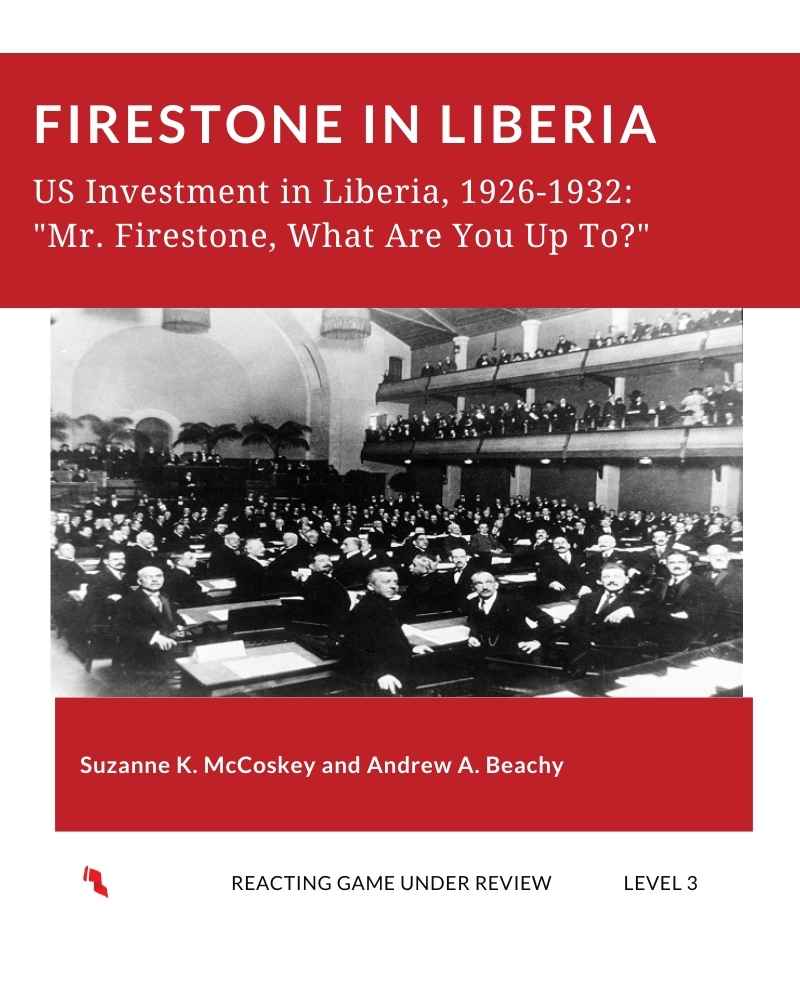 |
Play this game recently? | Deliberate with delegates from across the African continent to present a united front against colonialism. How will European colonialism end and what shape will independent Africa take? Should the nation-state remain the paramount political unit for independent African states, as it has been for the European powers, or is something different desirable or even possible? If the colonizers refuse to cede power, what strategies and tactics should Africans adopt to win their independence? Is violence ever justified? At the All African People's Conference you will engage with these and other questions about the future shape of the continent and political and economic forms for African peoples. After the end of World War II, these questions and others like them became increasingly urgent as it became clear that colonialism could not be sustained in its current form. As the game begins in December 1958, delegates arrive in Ghana's capital of Accra to discuss these issues. The Kenyan Tom Mboya has been selected chairman of the conference and Ghanian Prime Minister Kwame Nkrumah and his advisor George Padmore are anxious to welcome delegates and to promote Ghana as a model for what postcolonial Africa might become. Much of what happens in the game will focus on politicking, the art of connecting with other people in order to acquire power and achieve political goals. Ultimately, you will work together to create and try to reach agreement on a series of resolutions. This is a Level 3 game that is still under development but has been approved by the Reacting Editorial Board (REB) for general use. A detailed explanation of the editorial process and game levels can be found on our REB Page. |
Details
|
Using the Game Class Size and Scalability Reviews
|
Reacting Consortium members can download all game materials below. You will be asked to sign in before downloading.
Please fill out the Permissions Request Form before using Hands Off Africa! in your class.
Gamebook Students need a Gamebook, which includes directions, resources, and historical content. | Instructor's Manual The Instructor's Manual includes guidance for assigning roles, presenting historical context, assignments, activities and discussion topics, and more. | Role Sheets Students also need a Role Sheet, which contains biographical information, role-specific resources or assignments, and their character's secret victory objectives. |
Additional Resources
Alexander Rolnick
Alex Rolnick has taught Social Studies for over a decade in public and independent school contexts in Tanzania, Somaliland and the United States. He currently teaches at Mary Institute Country Day School (MICDS) in St. Louis, and serves on the Reacting Consortium Board. He has a M.S. in Curriculum & Instruction from the University of Wisconsin-Madison. Some of the work he is most proud of as a teacher is creating curriculum that utilizes role play to deeply engage students in learning in order to help them analyze, understand and represent diverse perspectives in the classroom. |
Eric Covey teaches in the School of Interdisciplinary Studies at Grand Valley State University, a large public university in West Michigan. He received his PhD in American Studies at the University of Texas at Austin in 2014. He wrote Americans at War in the Ottoman Empire: US Mercenary Force in the Middle East (I.B. Tauris, 2018), and was a Fulbright U.S. Scholar at the University of Abuja in Nigeria from 2018 to 2019. Now, in the classroom and beyond, Eric uses literature, sequential art (comics, graphic novels and history), game-based learning, and international virtual exchange to help students connect with each other and the world. |
Members can contact game authors directly if they have questions about using the game. We also invite instructors join our Facebook Faculty Lounge, where you'll find a wonderful community eager to help and answer questions.
|
|
|



